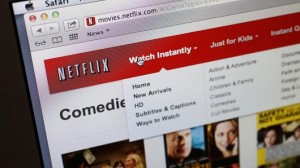Last week I happened upon a journal article for the Annals of Internal Medicine entitled, “What Can Medical Education Learn from Facebook and Netflix?” The study was written under the pretense that the tools that are used to entertain medical students are far more sophisticated than the tools that are used to teach medical students. Facebook and Netflix use algorithms to service up user-focused content. If that works for entertainment, then why isn’t it being used to teach some of life’s most important lessons?
Taking the Guess Work out of the Wellness Model
 As pointed out in the article, medical education would be a great use case for algorithmic and social learning. Beyond the obvious, the awesome side effect is that, perhaps, doctors that use these tools successfully when they are educated would then find ways to incorporate them into health education for patients. In my (completely biased) opinion, health education contains life’s most important lessons. Education is provided throughout the increasingly complex and interconnected episodes of care that run through integrated networks. These networks include hospitals, health systems, ambulatory care centers, community clinics, long-term care facilities, home care agencies, and medical groups, that work together to coordinate care and share accountability for quality, cost, and outcomes. In order to make this work, care providers can’t simply be manufacturers of “sick care”, which has been the norm for far too long.
As pointed out in the article, medical education would be a great use case for algorithmic and social learning. Beyond the obvious, the awesome side effect is that, perhaps, doctors that use these tools successfully when they are educated would then find ways to incorporate them into health education for patients. In my (completely biased) opinion, health education contains life’s most important lessons. Education is provided throughout the increasingly complex and interconnected episodes of care that run through integrated networks. These networks include hospitals, health systems, ambulatory care centers, community clinics, long-term care facilities, home care agencies, and medical groups, that work together to coordinate care and share accountability for quality, cost, and outcomes. In order to make this work, care providers can’t simply be manufacturers of “sick care”, which has been the norm for far too long.
The old guard of care is an environment where all care takes place within the brick and mortar of an eight-minute doctor’s visit. Reimbursement took place under a fee-for-service model. There is a seismic, and stress inducing, cultural shift taking place that transforms our “sick care” model into a “wellness” model that impacts care outside of the clinical setting in a transformational way. The market has reached a place where the industry has both the incentives and information needed to move towards this new model of care. The business practice challenge will understandably take much more time to heal.
Algorithmic Health Education
In today’s day and age we have many methods to personalize preventive medicine. You can call it creepy or cool when you see Facebook algorithms that can be used to tailor personalized prevention messages to patients. Healthcare organizations can also use self identification programs to offer up personalized content on dynamic portions of the public website or the patient portal. On a grander scale, data from relatively inexpensive genomics testing can become powerful data that the algorithm can use to personalize preventative medicine throughout a lifetime.
Bringing patient and clinician into a partnership towards better health will be the foundation upon which this trend will flourish. Technology that bridges the divide between the brick-and-mortar and into the everyday lives of patients at home, at work, at school, and in their communities is the ultimate catalyst for wellness care. Using the power of Netflix, many doctors and patients have undoubtedly succumb to a good binge watching session of House of Cards. If we play our cards right, then perhaps we can get patients to watch their health with the same level of enthusiasm.
